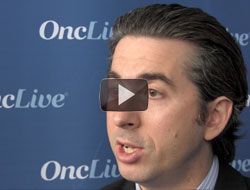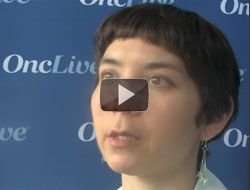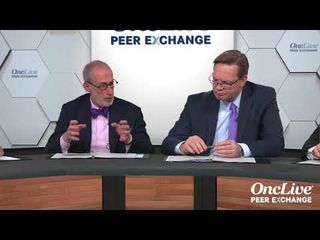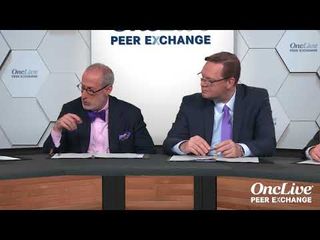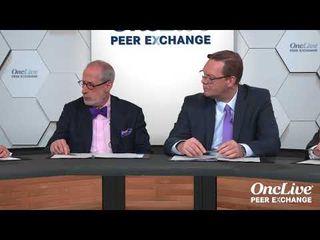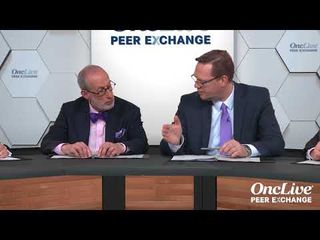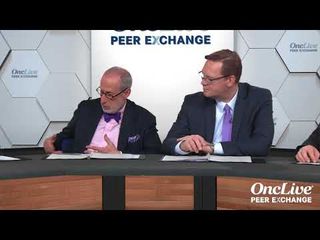
Melanoma & Skin Cancer
Latest News
Latest Videos

CME Content
More News

Anna Pavlick, DO, discusses immunotherapy and targeted combination regimens in advanced melanoma.


The European Commission has approved the hedgehog inhibitor sonidegib (Odomzo) for the treatment of patients with locally advanced basal cell carcinoma (laBCC) who are not amenable to curative surgery or radiation therapy.

The FDA has granted a priority review to pembrolizumab (Keytruda) as a frontline treatment for patients with advanced melanoma.

The FDA has extended the review period for frontline nivolumab in patients with advanced melanoma by 3 months, to allow ample time to review additional data submitted by the PD-1 inhibitor's developer Bristol-Myers Squibb.

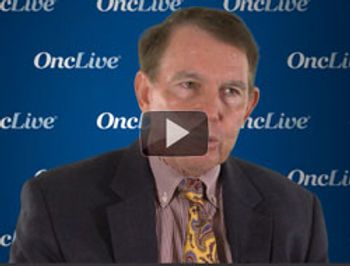
Jeffrey M. Trent, MD, president and research director, Translational Genomics Research Institute, discusses the Stand Up to Cancer-Melanoma Research Alliance Dream Team.

The FDA has approved sonidegib (Odomzo) for the treatment of patients with locally advanced basal cell carcinoma that has recurred.

The FDA has assigned a priority review designation to the combination of dabrafenib and trametinib for patients with unresectable or metastatic BRAFV600 mutation-positive melanoma.
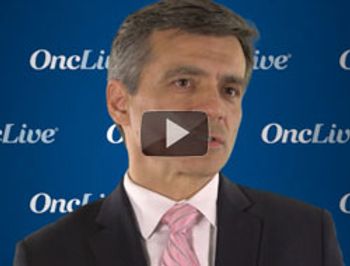
Aleksandar Sekulic, MD, PhD, chief resident associate, Dermatology, Clinician Investigator Training Program, Mayo Clinic, discusses the rationale for molecular testing in patients with advanced melanoma.

The European Commission has approved the PD-1 inhibitor pembrolizumab as a treatment for adult patients with unresectable or metastatic melanoma in the first-line and previously treated settings.

Advances in the field of immunotherapy and targeted therapy have brought about new recommendations for patients with melanoma.

Melissa A. Wilson, MD, PhD, discusses how targeted therapies and combination protocols are revolutionizing the treatment paradigm of advanced melanoma.
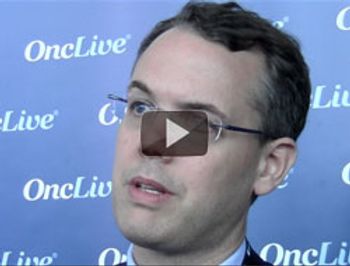
Hendrik-Tobias Arkenau, MD, PhD, executive medical director, Drug Development Unit, Sarah Cannon Research Institute-United Kingdom, discusses the overall survival results of the COMBI-d study, which examined the combination of dabrafenib and trametinib for the treatment of patients with unresectable or metastatic BRAF V600-mutated melanoma.

James P. Allison, PhD, was honored in the Scientific Advances category with a 2014 Giants of Cancer Care® award, a program that the Intellisphere® Oncology Specialty Group launched to honor leaders in the field.

The FDA has extended the review period for the MEK inhibitor cobimetinib in combination with the BRAF inhibitor vemurafenib (Zelboraf) for patients with BRAFV600 mutation-positive advanced melanoma by 3 months, making the new decision date November 11, 2015.

Howard L. Kaufman, MD, discusses the rapidly advancing immunotherapy armamentarium in melanoma.

OncLive sat down with Jason J. Luke, MD, discusses the key areas in the treatment of melanoma discussed at the 2015 ASCO Annual Meeting included selecting appropriate immunotherapy regimens based on PD-L1 status and improving surgical practices.

Marc Ernstoff, MD, Department of Hematology and Oncology, Cleveland Clinic, discusses results from a study examining the combination of nivolumab (Opdivo) and ipilimumab (Yervoy) in patients with advanced BRAF-mutated or BRAF wild-type melanoma.

The European Commission has approved nivolumab as a treatment for patients with advanced melanoma in the first- and later-line setting regardless of BRAF mutation status, making it the first PD-1 inhibitor to gain approval in Europe.

Combination MEK/BRAF inhibition with trametinib and dabrafenib reduced the risk of death by 29% in patients with BRAF-mutant advanced melanoma.

Jedd D. Wolchok, MD, discusses the unique design and goals of the CheckMate-067 trial, and what its results mean for patients with advanced melanoma going forward.


Frontline nivolumab as monotherapy and in combination with ipilimumab more than doubled progression-free survival versus ipilimumab alone in patients with advanced melanoma.

Patients with melanoma who are found to have micrometastases after an initial positive sentinel node biopsy can safely forgo a complete lymph node dissection, thus avoiding the risk of debilitating adverse events from the surgery.


